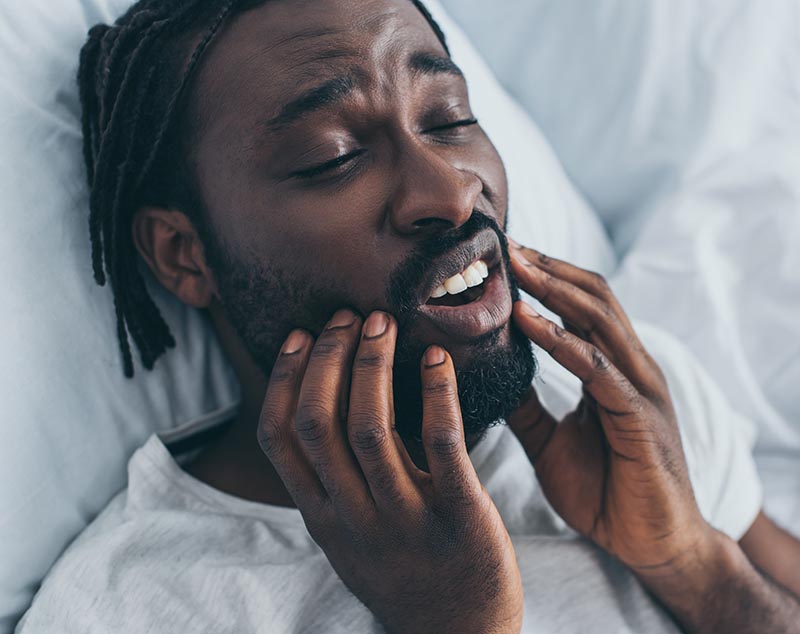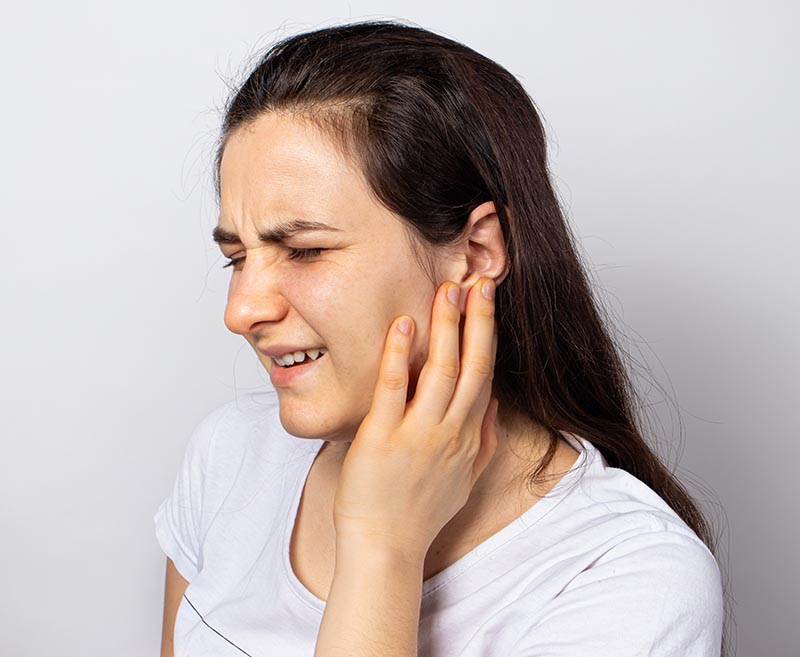Download The Ultimate Guide to Sustainable Dentistry eBook
TMJ stands for temporomandibular joints. However, it is also often used to describe temporomandibular joint disorders, typically referred to as TMD. TMJ/TMD describes a disorder of the jaw joints that connect your jaw to your skull or the muscles that control the joints. When these joints are out of place, they may cause problems, such as clicking or popping, pain in or around the jaw joints, locking or a limited opening of your mouth, and more.
In dental terms, this condition is referred to as “Craniomandibular Dysfunction.”
TMJ/TMD Symptoms
In many cases, the pain and discomfort you feel is only temporary, but it is still crucial to look for and identify these signs and symptoms of TMJ:
- Pain or tenderness in the jaw
- Pain in one or both temporomandibular joints
- Difficulty or pain when eating, chewing, or speaking
- Facial pain
- Clicking or popping in the jaw
- Lockjaw
- Sinus headaches or migraines
- Clenching or grinding of teeth
- Neck and shoulder stiffness
- Earaches
- Numbness or tingling of the fingers


What Causes TMJ/TMD?
It is estimated that as many as 44 million Americans suffer from one or more of these symptoms and travel from doctor to doctor but never think of seeking a dental specialist for help.
The most common cause of Craniomandibular Dysfunction is a misaligned bite. If your bite is not properly aligned, which may result from a missing tooth, misaligned teeth, or back teeth that are too short, it can affect both the muscles and joints of your jaw.
Your upper and lower teeth come together each time you swallow, which happens over 2000 times throughout each day and night. When your bite is unstable, this action can create tissue damage, muscle tenderness and pain, and in turn, create muscle spasms, which only increase the pain.
The position of the teeth can also affect your jaw joints and pull it out of alignment, which results in clicking or popping sounds and can cause permanent damage to the joint.
In addition, when this condition is prolonged, the body may compensate by involving muscles in the neck, back, and occasionally the arms, fingers, pelvis, legs, and feet.
At Dentistry for Health NY, we can determine if you have Craniomandibular Dysfunction and discuss the treatment options. At least, if you have any of the symptoms mentioned, we can pinpoint whether they are related to jaw joint dysfunction, and if so, relieve you of symptoms that may have been present for years.

 Request Appointment
Request Appointment